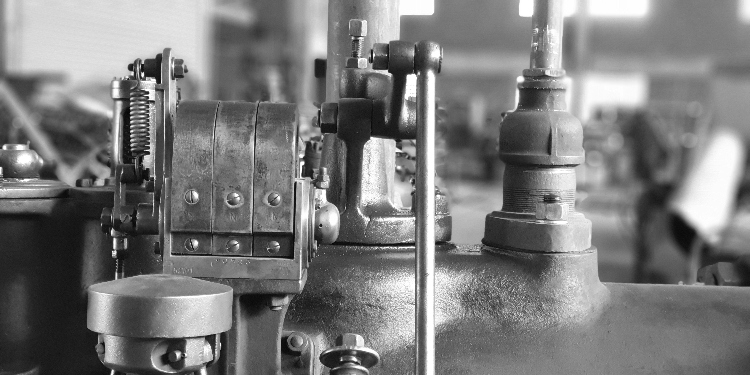Industrial operations—ranging from mining and construction to food processing and wastewater management—rely heavily on fluid movement. At the heart of these operations lies one of the most vital mechanical components: the industrial pump. From moving clean water to transporting abrasive slurries, industrial pumps enable efficiency, productivity, and safety in a wide range of sectors. This article dives into what industrial pumps are, their major types, core functions, industry applications, and how to choose the right one for your project.
What Are Industrial Pumps?
Industrial pumps are heavy-duty mechanical devices designed to move fluids—liquids, slurries, or gases—from one location to another. These pumps are built to withstand harsh environments and high operating loads, and they vary widely based on fluid type, flow rate, pressure requirements, and material compatibility. Whether it’s pumping wastewater in treatment plants or handling viscous chemicals in manufacturing, industrial pumps are engineered to meet the specific demands of each application.
Key Types of Industrial Pumps
Centrifugal Pumps
Centrifugal pumps are the most common type used in industrial settings. They use a rotating impeller to create velocity and convert it into flow. These pumps are ideal for low-viscosity fluids such as water and light chemicals. Known for their high flow rates and efficiency, they are frequently used in HVAC systems, water treatment, and fire protection systems.
Positive Displacement Pumps
Unlike centrifugal models, positive displacement pumps move a fixed volume of fluid per cycle, making them ideal for high-viscosity fluids or applications requiring precise dosing. These pumps are often used in food and beverage, oil and gas, and chemical industries. They include piston, diaphragm, and gear pumps, offering versatility across a wide pressure range.
Submersible Pumps
Submersible pumps are designed to operate while fully submerged in the fluid they are pumping. These pumps are ideal for dewatering, sewage handling, and flood control applications. The submersible water pump and hydraulic submersible pump variants are widely used in construction and mining for their portability and ability to function in challenging, submerged conditions.
Slurry and Sludge Pumps
Slurry pumps and sludge pumps are built to handle thick, abrasive, and high-solid content fluids. These pumps are engineered with wear-resistant materials and are commonly found in mining, wastewater treatment, and dredging operations. Their ability to transport solid-laden fluids makes them essential in operations where durability and power are crucial.
Core Functions of Industrial Pumps
The primary function of any industrial pump is to transfer fluids efficiently—be it water, chemicals, slurries, or gases. These pumps also serve to:
- Maintain pressure in pipelines
- Enable chemical processing and mixing
- Assist in cooling and heating operations
- Support dewatering, sludge removal, and slurry transfer
Beyond fluid movement, pumps also contribute to system safety by preventing overflow, backflow, and environmental contamination when paired with proper control systems.
Common Applications Across Industries
Industrial pumps find applications in nearly every industrial sector:
- Mining: For transporting slurries, dewatering mines, and tailings management.
- Construction: Dewatering foundations and handling wastewater.
- Oil & Gas: Transferring crude oil, chemicals, and hydraulic fluids.
- Municipal Water Management: In submersible pumps for sewage and water treatment.
- Food and Beverage: For gentle handling of viscous fluids like syrups and dairy.
- Agriculture: For irrigation and livestock wastewater handling.
Each application demands a specific type of pump with the right materials, power requirements, and features.
Industry Standards and Compliance Guidelines
To ensure safety, efficiency, and reliability, industrial pumps must comply with a variety of industry standards, including:
- ANSI/HI (Hydraulic Institute) standards for pump performance and design
- API (American Petroleum Institute) standards for pumps used in oil and gas
- ISO 5199/2858 for standardized pump dimensions and operating conditions
- ATEX Compliance for pumps used in explosive atmospheres
These certifications and standards guide manufacturers and buyers in evaluating pump reliability and application compatibility, especially in regulated industries like pharmaceuticals and oil & gas.
Choosing the Right Pump for Your Operation
Choosing the correct industrial pump requires a detailed understanding of your system requirements:
- Fluid Characteristics: Is it water, slurry, sludge, or corrosive chemicals?
- Flow Rate and Pressure Needs: Do you need high flow volume or high pressure?
- Pump Environment: Will the pump be submerged, or operate in a hazardous area?
- Power Source: Electric, hydraulic, or diesel-powered?
- Maintenance Access: How easy is it to clean or repair?
For instance, if you’re handling abrasive slurry in a mining environment, a robust slurry pump with wear-resistant linings is essential. Conversely, for flood dewatering or wastewater handling, a submersible water pump is often the most efficient and space-saving solution.
Why DAE Pumps Is a Trusted Name in Industrial Pumping Solutions?
DAE Pumps stands out as a leading provider of high-performance industrial pumps across multiple industries. With a wide range of offerings—from hydraulic submersible pumps to durable sludge and slurry pumps—DAE Pumps combines engineering precision with practical field experience to deliver reliable pumping systems.
What sets DAE Pumps apart is:
- Customizable solutions tailored to unique applications
- Industry-grade materials designed for abrasive and corrosive fluids
- Compliance with top international standards
- A knowledgeable team that offers end-to-end support—from selection to installation
Whether you’re sourcing pumps for dewatering, dredging, mining, or wastewater treatment, DAE Pumps ensures efficiency, durability, and peace of mind.
Conclusion
Industrial pumps are the backbone of fluid handling systems in virtually every industry. By understanding the various types—like centrifugal, submersible, slurry, and sludge pumps—and their key functions, industries can improve process efficiency, safety, and equipment lifespan. Following industry standards and choosing the right pump for your operational needs is essential to long-term success.
With industry leaders like DAE Pumps, businesses gain access to cutting-edge technology, unmatched durability, and a deep understanding of real-world pumping challenges. If you’re ready to optimize your pumping systems, start with trusted industrial pump solutions built for performance and reliability.


![7 Best POS Software in the UK [2026 Edition]](https://todaynews.co.uk/wp-content/uploads/2026/02/7-Best-POS-Software-in-the-UK-2026-Edition-360x180.png)








































































